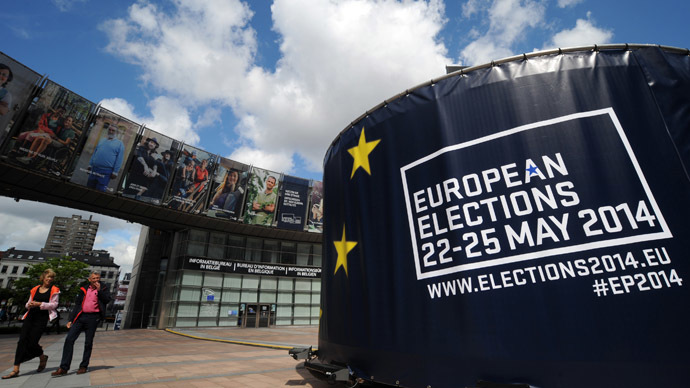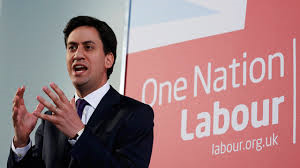
Populism vs. Technocracy? How political parties adapt to new dominant narratives.
Over the last decades, populism and technocracy have attracted a great deal of public attention and generated a lively scholarly debate. As it has recently been argued, they have emerged as the two dominant discourses on the European political scene. As the 2014 European elections clearly showed, even traditional, mainstream political parties increasingly rely on either or both these narratives. One insightful example is the discursive practices of Matteo Renzi’s Democratic Party during the Italian electoral campaign.
After his rise as party leader and then Italy’s youngest ever Prime Minister, Renzi has become a favourite of the international press. As early as 2010, when he was still mayor of Florence, the Tuscan politician proved himself an extremely skilled communicator. His idea of ‘rottamare’ (‘scrapping’) the entire political class had an extremely wide impact on public opinion and soon became a slogan for all those who wanted to contest the status quo in Italian politics. The growing support he received from the public convinced him to run for his party’s leadership primaries in 2012 and then, successfully, in 2013. Nowadays, Renzi’s PD embodies an arguably renewed organisation. The internal opposition has been gradually marginalised and the re-compacted majority has developed a political discourse based on pragmatism, hope for the future and the need for change. In particular, one can observe how the PD has gradually assimilated populist and technocratic discursive strategies by examining the ways in which it deals with a key issue such as the European Union.
The populist mode. According to a growing body of literature, typical examples of populist discursive practices include the reliance upon Manichean oppositions, romanticised and essentialist visions of the people, appeals to the multitude whilst excluding others and extreme simplification and moralisation (Wodak 2003).

Ed Miliband’s Labour and ideology. Did New Labour change the party forever?
In 2010, Ed Miliband inherited a party troubled by tensions and confusion. After three electoral victories and 13 years in office, New Labour had lost its appeal due to the legacy of the Iraq war, a series of burning scandals and endless backbenchers’ rebellions. Blair had resigned in 2007, replaced by his eternal rival Gordon Brown, with many of those within Labour seeing him as more traditionally left-wing and able to rescue the party from its decline. Yet, the 2008 financial crisis had promptly interrupted Brown’s brief honeymoon with the electorate and Labour had lost the 2010 General Elections, leading to a Conservative-Lib Dem coalition government. Ed Miliband, a young Brownite, then won a bitter leadership contest, in which the main adversary was his brother David, one of Blair’s closest advisors. Ed obtained the support of most of the Unions and of many social-democrats who had at some point started to despise the Blairite model, examples being Roy Hattersley and Neil and Gladys Kinnock. He did so by differentiating himself from the previous leadership, declaring that New Labour was over and running a quite leftist campaign.
Four years later, many question what the current leadership actually stands for and whether Labour has witnessed an authentic ideological revision. On the one hand, Miliband launched the new slogan ‘One Nation Labour’, inspired from a famous Disraeli’s speech, which has been praised as an attempt to revitalise socialism in the context of the current economic crisis, as well as criticized for flirting with rightward doctrines such as compassionate conservatism. On the other hand, he has often declared his preference for an open and pluralist model of leadership and defended the value of a lively internal debate. Therefore, despite describing himself as ‘a European social-democrat who takes inequality very seriously’, Miliband has witnessed and even promoted the rise of a number of ideological sensibilities.
Party factions, think-tanks and research institutes defending sometimes very different positions, such as Progress, Compass, Tribune or Briefing, all contributed to this lively debate.

Matteo Renzi’s PD eight months later: where now for the Italian left?
Leading the Italian left has never been an easy task. After the collapse of democratic centralism (i.e. the Leninist practice which obliged the membership to uphold any leader’s decision following an internal discussion), leadership has soon become the Achilles’ heels of the Italian former communists. Party secretaries have been weakened by the rising power of internal factions, used as scape-goats after electoral defeats and blamed for both lack of charisma (Pierluigi Bersani) and excessive protagonism (Massimo D’Alema and especially Matteo Renzi himself).
Moreover, the presidential leadership style of its eternal enemy, Silvio Berlusconi, made the Italian PD (Democratic Party) rather unenthusiastic toward the trends of personalisation and presidentialisation spreading all over Europe. It is not by chance that the Berlusconian model always comes up when discussing Renzi’s personality and politics. Internal opponents and critical observers denounce Renzi’s simplified language and slogans, as well as his post-ideological appeal and charismatic governance. He is even often described as the son of Berlusconi, in the same way that Tony Blair was once called the son of Thatcher.
Albeit controversial, Renzi’s personalized approach seems to have played a key-role in his rise to power. Studies conducted among the delegates at the 2013 Party Conference show that the party’s majority backed him in virtue of his personal characteristics and leadership skills rather than political message. Moreover, whereas the 2012 delegates expected the at-that-time-leader Bersani to promote a process of identity reconstruction and grassroots’ institutionalization, the 2013 Conference asked Renzi for concrete strategies to win the next General Elections (Martocchia Diodati 2014).










